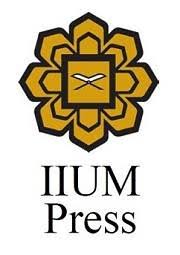قول عبد الله بن مسعود في المعوِّذتين: بين الشكِّ واليقين
Abdullah Ibn Mas'ud`'s Statement on Surah Al-Falaq and Surah Al-Nas: between Myth and Reality
DOI:
https://doi.org/10.31436/alburhn.v7i1.294Keywords:
المعوذتان، الشك ، الحقيقة، حكم من كفرAbstract
Surah Al-Falaq and Al-Nas are the last two Surahs of the Holy Qur'an in terms of composition. The surahs are called in one word, "Al-Mu`awwidhatan." Through these, Allah SWT instructed His Prophet (PBUH) to seek freedom from witchcraft, violence, hatred, harm, and Satan's evil counsel. When a Jew of Madinah named Labid ibnul A`sam bewitched the Messenger of Allah (PBUH), both Surahs were revealed to free him from it. They are recited in prayer and outside prayer. That continuity has been going on since the era of the Prophet (PBUH). These are well known as the Surahs of the Holy Qur’an to common Muslims and scholars. But from the comments of the prominent companion Ibn Mas'ud (R.A.), it is claimed that these are not the surahs of the Holy Qur'an but were revealed as supplications. Everyone has tried to explain his statement in different ways. Some say that he did not deny the verses of the Holy Qur’an but opposed the recitation in Salah. Some say that he only forbade writing on the copy of the Holy Quran. But narrations in various books, including Sahih Bukhari, prove that he did not write them in his copy of Al-Qur'an and rejected it as independent Surahs. In this situation, the question arises: Are these surahs of the Holy Qur’an considered independent surahs? How accurate is Ibn Masud's statement in this case? If his statement is not acceptable, then what is the explanation? By analyzing these questions, the article tries to solve the related problems. It follows historical and analytical research methods. The study asserts that Ibn Mas`ud (R.) indeed assumed that the Surah Falaq and Surah Nas might not be parts of the Qur’an, but later he changed his stance and regarded them to be independent surahs of the Qur’an. Even if he continued to believe that they were simply supplications and not the parts of the Qur’an, that goes against established fact by Mutawatir [a large number of narrators] and Ijma` [consensus of the scholars]; hence, it will not be considered at all. Undoubtedly, both surahs are integral parts of the Qur’an, and no sound mind could claim against their Qur’anic status.
Downloads
References
The Holy Qur'an.
Ibn Hanbal, Ahmad. (1991). Al-Musnad, Lebanon: Dar Ihya Al-Turath.
Al-Tantawi, Muhammad Sayed. (1993). Al-Tafseer Al-waseet, Cairo: Dar Al-Ma`arif.
Ibn Hibban, Abu Hatim Muhammad bin Faisal Al-Basti Al-Darmi. (1404AH). Al-Sahih. (Shu`aib al-Arna’ut and al-Asad ed.).Beirut: Muassasa Al-Risalah.
Ibn Khuzaymah, Abu Bakr Muhammad bin Ishaq bin Khuzaymah. (1992). Al-Sahih, (Mustafa Al-`Azami ed.) Beirut: Al-Maktab Al-Islamiy.
Ibn Al-Jazari, Abu Al-Khair Muhammad bin Muhammad Al-Dimashqi. (2009). Al-Nashr Fi Al-Qira`at Al-`Ashr. Beirut: Dar Al-Kutub Al-`Ilmiyyah.
Abu Dawud, Suleiman bin Al-Ash’ath Al-Sijistani. (1403AH). Sunan Abi Da’wud. (Habib Al-Rahman al-`Azami ed.). Beirut: Al-Maktab Al-Islami.
Ibn Hazm, Abu Muhammad Ali bin Ahmad. (1352AH). Al-Mahalla bi-Al-Athaar. Cairo: Idarah Al-Taba`ah Al-Munirah.
Ibn Kathir, Abu Al-Fida Ismail bin Omar Al-Qurashi. (2013). Tafsir Al-Qur`an Al-`Azim, Mansoura: Dar Al-Yaqin, 2013.
Ahmad, Mahmoud Shaker. (n.d.). Al-Ba`ith Al-Hathith. Beirut, Dar Al-Kutub Al-Ilmiyyah.
Ibn Al-Bajish, Abu Ja`afar Ahmad Al-Ansari. (1403AH). Al-Iqn`a Fi Al-Qira`at Al-Sab`i. Makkah: Matabi` Umm Al-Qura.
Al-Bukhari, Abu Abdullah Muhammad bin Ismail. (1987). Al-Sahih. Beirut: Dar Ibn Katheer.
Al-Baqillani, Al-Qadi Abu Bakr Muhammad ibn Al-Tayyib. (2001). Nikat Al-Intisar Li Naqli Al-Qura`an. Beirut: Dar Ibn Hazm.
Al-Bazzar, Abu Bakr Ahmad bin `Amr Al-`Ataki. (2009). Al-Musnad. Madinah: Maktabah Al-`Uloom wa Al-hikam.
Al-Tirmidhi, Abu `Isa Muhammad ibn `Isa. (1975). Al-Sunan, Makkah Al-Mukarramah: Al-Maktaba Al-Faisaliyyah.
Al-Khalil, Ibn Ahmad. Al-`Ain, Masadir Al-Kutub: Al-Warraq Website, http://www.alwarraq.com
Al-Darimi, `Abdullah bin `Abdu Al-Rahman Al-Samarqandi. (2000). Al-Sunan. Cairo: Dar Al-Hadith.
Al-Tabarani, Suleiman bin Ahmad. (1983). Al-Mu`jam Al-Kabeer, Mosul: Maktabah Al-`Uloom wa Al-Hikam.
Al-Munawi, Muhammad `Abd al-Rauf. (1994). Faid al-Qadeer Fi Sharh Al-Jam`i Al-Sageer. Lebanon: Dar Al-Kutub Al-`Ilmiyyah.
Muslim, Asaker al-Din bin Hajjaj Al-Qushayri. (1375AH). Al- Sahih. Beirut: Dar Ihiya Al-Turath Al-Arabi.
Al-Nawawi, Abu Zakariya Yahya bin Sharaf. (n.d.). Al-Majmu’ Sharh Al-Muhadhdhab. Lebanon, Dar Al-Fikr.
Al-Haythami, Nur al-Din Ali bin Abi Bakr. (1412AH). Majma` Al-Jawaid wa Manba` Al-Fawaid. Beirut: Dar Al-Fikr.
Downloads
Published
How to Cite
Issue
Section
License
In general, reusing or reproducing substantial portions of al-Burhān content requires permission. This includes the use of text, figures, tables, multimedia content, and any other material published in any issues of al-Burhān Journal of Qur'an and Sunnah Studies. For some instances, al-Burhān may make its content freely viewable; however, such material may require permission for reuse. To seek permission, please contact the editorial.









